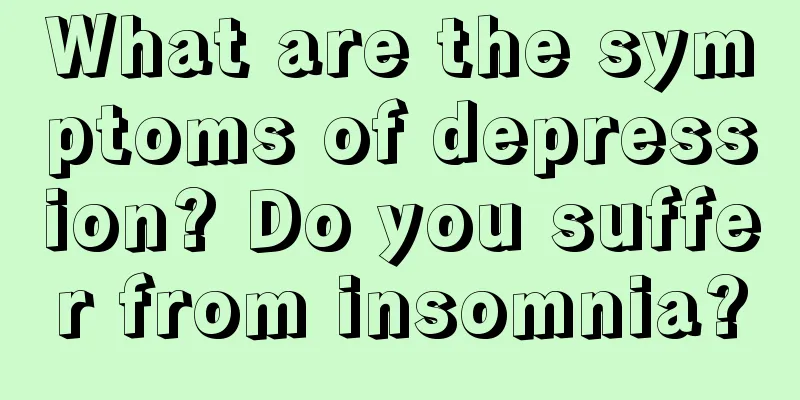I feel dizzy and my eyes are blurry recently

|
In our daily life, due to some bad eating habits, lack of rest, virus infection and other reasons, it is easy for our body to develop some diseases. For example, feeling dizzy and blurred vision is a very common situation. This situation has a great impact on our lives, and measures should be taken in time for treatment. So what is the matter with feeling dizzy and blurred vision recently? Based on this situation, it is more likely that insufficient blood supply to the brain is caused by abnormal blood pressure and blood lipids. It is a common functional brain disorder and one of the common clinical symptoms. It causes feelings of dizziness, head swelling, heaviness, shaking in the brain, blurred vision, etc. Dizziness can be caused by many reasons, the most common of which are febrile diseases, hypertension, cerebral arteriosclerosis, craniocerebral trauma syndrome, neurosis, etc. In addition, it is also seen in anemia, arrhythmia, heart failure, hypotension, drug poisoning, uremia, asthma, etc. Dizziness is also common in the early stages of depression. Dizziness can occur alone, but is often accompanied by headaches. When dizziness is accompanied by balance disorder or spatial orientation disorder, the patient feels that the surrounding environment or himself is rotating, moving or shaking, which is called dizziness. [Classification of dizziness] Dizziness can be seen in (motion sickness, seasickness), hypertension, anemia, cerebral arteriosclerosis, excessive smoking and drinking, etc. The following are several types of dizziness: ① Cerebral dizziness, seen in cerebral arteriosclerosis (such as basilar artery sclerosis) or cervical spondylosis caused by cerebral blood circulation disorders, or the resulting transient cerebral ischemia. Its clinical characteristics are three major symptoms: dizziness, sleep disorders, and memory loss, as well as occipital headache, mild paralysis, speech disorders, and irritability. The disease generally develops slowly. The characteristic of this type of dizziness is that it is easy to occur or worsen when the body position changes. ② Cardiogenic dizziness can be seen in acute cardiogenic cerebral ischemia syndrome, which is acute cerebral ischemia caused by cardiac arrest, paroxysmal tachycardia, paroxysmal atrial fibrillation, and ventricular fibrillation, which can manifest as dizziness, blurred vision, stomach discomfort, syncope, etc. ③ Vascular inhibition dizziness is often triggered by emotional tension, pain, fear, bleeding, hot weather, fatigue, cavity, insomnia, etc. Patients often experience autonomic nervous system dysfunction such as dizziness, vertigo, nausea, upper abdominal discomfort, pale complexion, cold sweats, etc. At that time, blood pressure dropped and pulse was weak. Vasoinhibitory dizziness is more common in frail young women. Orthostatic hypotension refers to dizziness, blurred vision, weak legs, vertigo, and even fainting when standing, often accompanied by anorexia and urinary and bowel disorders. ④ Dizziness caused by drug poisoning, most common in poisoning by streptomycin, neomycin, kanamycin, gentamicin, etc. In addition to dizziness, patients also suffer from vertigo and sensorineural hearing loss caused by cochlear nerve damage. Chronic lead poisoning is often manifested as neurasthenia syndrome (with dizziness, headache, insomnia, forgetfulness, fatigue, and nightmares as the main symptoms), as well as hypothermia and loss of appetite. Functional hypoglycemia can also cause dizziness, palpitations, weakness, tremors when fasting or exerting oneself, sometimes convulsions, loss of consciousness, etc. When you are emotionally stressed or hyperventilating, respiratory alkali poisoning may occur due to increased carbon dioxide excretion, brain cell hypoxia, causing dizziness and fatigue. The patient may also feel numbness and coldness in the face, hands and feet, and occasionally a sense of trance. [Examination of patients with dizziness] For patients with dizziness, the medical history should be understood in detail and a comprehensive physical examination should be performed. If necessary, hearing tests, vestibular function tests, fundus examinations, and cerebrospinal fluid examinations, head or cervical spine X-rays, electrocardiograms, electroencephalograms, and brain CT scans should be performed to find out the cause of the disease. [Treatment of patients with dizziness] The most fundamental way to treat dizziness is to treat the cause, and symptomatic treatment can be given according to different causes. [Edit this section] Diet for dizziness Diet therapy for dizziness takes precedence over drug therapy. Ensure a quiet environment and adequate sleep, and avoid excessive brain use and mental stress. |
<<: What to do if your nose bleeds
>>: What are the basic modes of neuromodulation?
Recommend
What causes stomach pain in esophageal cancer
We all know that progressive dysphagia is the fir...
Three common methods for treating colon cancer
Colon cancer is a common disease, and patients wi...
What are the methods to remove oil stains from clothes
We are bound to have social engagements in our da...
Reasons for red marks on the neck
There are red marks on the neck, which many patie...
How long can a patient with malignant alveolar lung cancer in the hilum of the lung live? How to treat alveolar lung cancer?
Lung cancer occurs in the bronchial mucosal epith...
Can scraping remove moisture?
Scraping is a common health care method. Many peo...
How to prevent lung cancer? Grasp 5 points to avoid the occurrence of lung cancer
To prevent any disease, the first thing to do is ...
Can brain glioma be cured? Folk remedies can cure serious diseases
Brain glioma is a common disease among teenagers ...
At what age do children grow all their teeth?
The growth and development of the baby is of great...
How long after using essential oil on your back can you take a shower?
Essential oil back massage is a common phenomenon...
Why are my hands swollen in the late stage of lung cancer?
Hand swelling in late-stage lung cancer may be ca...
How long can you live with a fever in the late stage of liver cancer? How should we prevent cancer in our daily life?
There are many symptoms in the late stage of live...
What is the method of picking up red wine
Red wine is actually a manifestation of elegant t...
What does high herpes simplex virus IgG mean
If the herpes simplex virus IgG is found to be hi...
There is a lump on my buttocks
The skin on the buttocks is actually quite fragil...









